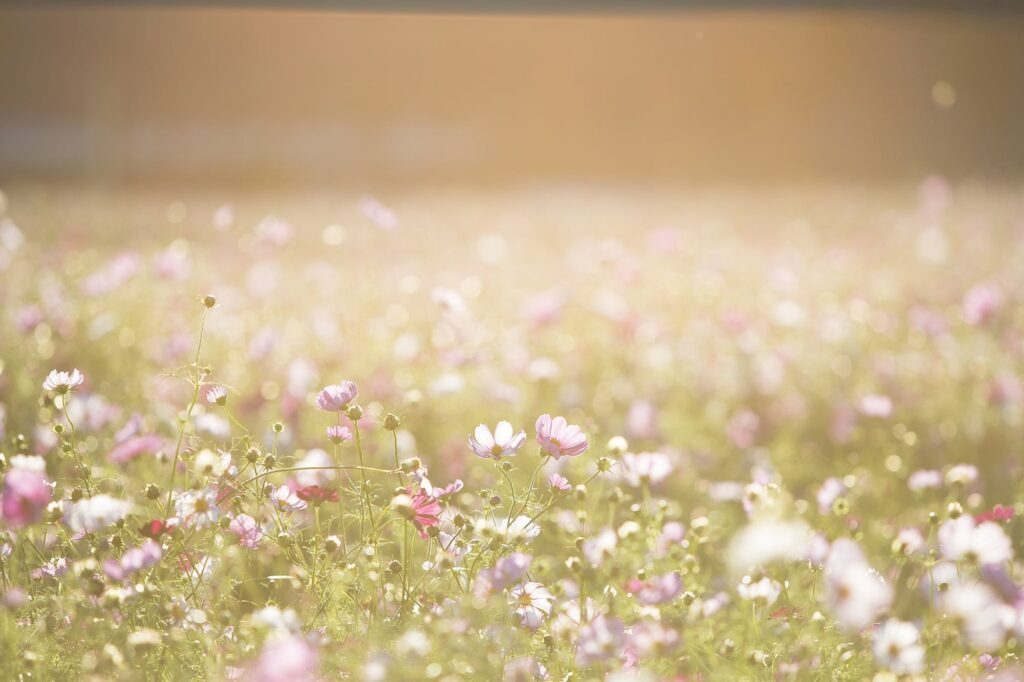
In the Dalai Lama’s words as a spiritual mentor I trust. And so I’m super interested in one of his books I’m reading at the time. Are you ready to hear which insights about the acquisition of happiness I had that took my breath away?
“The American Dream” – and other Western lies
The first thing he makes clear is that happiness does not come with wealth! It’s easy to think that people who live poorer lives then we do have to be miserable. Being constantly hungry, cold, sick, unsafe – without food, shelter, safety – etc. makes a bad life. I don’t agree with that. It makes life harder, that’s for sure. But the harder the life, the more valuable the experiences… The ones that are truly miserable are we. Constantly looking for more. More money, more things to accumulate, more status, more friends, more clothes, cars, more years of age etc. That’s what the Western world strives towards.
Yet, we have forgotten what the true luxuries are in life: Peace, health, love. The reason why almost no one in our society is truly happy is because we are constantly chasing after what we still don’t have, while at the same time forgetting – or worse, ignoring – what we already do have. Until it gets taken away from us.
The true luxuries in life
Has it ever happened to you before that when you got sick you couldn’t do anything for days except trying to get better again. And you thought, why did I never appreciate being healthy, when I at least could get up? And shortly after we get better again and forget that we actually wanted to be more grateful for our health.
When comparing our lives to those of others we belittle our own achievements. Having one or two good friends is so valuable. Being able to feed yourself every day means you’re doing really good in life. Being safe and being able to live in peace means you are truly blessed. Having a deadline, an exam or a workday ahead of you being your biggest worry at the time, means you live better than most people on this earth.
Does perfect happiness exist?
The Dalai Lama who himself lived in poverty for many years, having been a Tibetan refugee early in life explained what it’s like to be poor. And yet he still reported that most people in Asian countries (which is where he made his experiences), no matter how bad their lives were, they were still kind at heart, offering shelter and help of any kind where they could. They stood together and appreciated what they had in life – love and friendship, connection, trust and loyalty from their people.
So, I asked myself, does the perfect form of happiness even exist? On the one hand we have poor, hungry, sick people, maybe victims of war, abuse, violence, etc. but still happy at heart because they value the love they have in their lives. And on the other side the western world with perfect health care, peace, food, shelter, possessions, money, opportunities, bright futures. Yet we still live in an endless cycle of unquenchable thirst for more. Very few people would say they are completely happy if you asked them. Because they still look for things they could acquire in this life, forgetting what they already have.
This is the one killer of happiness
Desire.
I have heard a spiritual mentor talk about this in a podcast a few years ago. The only reason we are unhappy is because there is something that we want that we don’t have yet. We desire something, and when we can’t have that it produces feelings of suffering. One could say that if we were able to give the whole entire world food, shelter, peace, healthcare, etc. That they would then be perfectly healthy. But then everybody starts seeing more and more things they want to have. It goes beyond things we need. Most people already have what they need. And a lot more than that. What we want nowadays is silly, useless. Perfume, clothes, decoration, cars, games, phones, make up. Do we really need it? Of course not. However, we do still think it’ll make us happy once we have it. And then once we do buy us something we really want, we enjoy it for a day and already look for the next thing.
Is being happy something unattainable?
I ask myself this question over and over again. Is this a never ending cycle that will only end with death? I don’t know. I’m not there yet (see how I’m chasing something, again)? The Dalai Lama himself wasn’t able to come up with answers (at least not until page 102, which is where I’m at right now). However, he does say that gratitude is an existential part of happiness. If you can’t appreciate what you already have you will never be satisfied with what you achieve, receive or acquire. Gratitude should be a daily practice. And it’s easier said than done I know.
And actually, that’s all I got.
It’s not about being perfectly happy!
Achieving peak happiness is not possible, it’s just not doable. Sure, we can deeply and truly appreciate what we have and that’s great. Don’t get me wrong. But it’s not realistic to all the time be perfectly happy with your life, no matter your circumstances. But guess what? That’s not the point, it’s not what life is about. Having a perfect life would be so boring. It’s the ups and downs that make it worth living. And yes, we all do strive for that unknown place in the future where we will be a little happier and a little more happy after that. But how much do you think would you learn if your life would not present you any challenges whatsoever, no hardships at all? Don’t look for perfect happiness, or you’ll be stuck in a endless cycle forever. It’s normale to want more. But don’t forget where you came from, what you have achieved in the process and be truly grateful for what you have and what you will have in the future.
It would be a sad life if we didn’t once in a while stand still, look around and see the miracles that surround us day by day.
I hope you enjoyed the reading. Thanks for sticking around.
Love, Valentina <3


